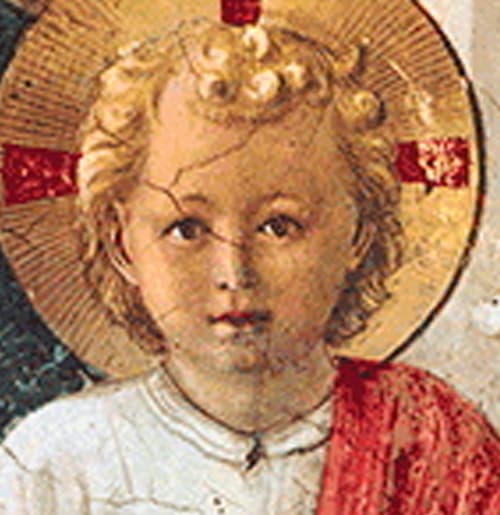Sarah Blaffer Hrdy,
Mothers and Others: The Evolutionary Origins of Mutual Understanding
(Cambridge, MA: The Belknap Press of Harvard University, 2009).
A decade after he introduced the world to "sociobiology" in 1975, E.O. Wilson co-authored (with Michael Ruse) a short piece in the New Scientist on "The Evolution of Ethics." Sociobiology is the field that explains human social behavior in terms of evolutionary biology, and this article gave a sociobiological account of ethics. Wilson tells us, in short, that our so-called "selfish genes" actually make us altruistic so that we may protect others who share our genes. A genetically-programed ethical code ensures that one's genes will last in the Darwinian struggle for survival, even if one dies in protecting genetic relations. But if feelings of love and concern for right and wrong come from a meaningless biological mechanism, why should we act on these feelings? Wilson's sociobiology, which destroys the meaning of human love in one fell swoop, is more unfounded philosophical speculation than scientific understanding.
On the surface at least, Mothers and Others by socio-biologist Sarah Blaffer Hrdy appears to refrain from explaining away human love in this way. Hrdy's philosophy is more subtle than her predecessor's, perhaps because she relies more on cultural anthropology, developmental psychology, and primatology than overtly reductive genetic theory. Remaining closer to the concrete phenomenon of human life makes her sociobiology appear more credible. Hrdy's core thesis, moreover, appears to complement the salutary trend in contemporary philosophy and theology of highlighting the interdependent nature of human beings. She argues that a group-wide mode of child-rearing known as "cooperative breeding" lead to the evolution of intersubjectivity and empathy in our hominid ancestors, which in turn opened the way for the evolution of our modern intelligence. In this evolutionary model, social interdependence (in general) and shared care of vulnerable young (in particular) were the necessary conditions for our ape ancestors to develop into Homo sapiens.
Generally speaking, the claim that shared care and empathy are required for the evolution of humans is unproblematic. Humans today participate in shared care and are empathic by nature. It is not so unreasonable, then, to surmise that something similar to, but distinct from, human child care and empathy evolved into these distinctly human forms. And if, as Hrdy suggests, hominids were nurturing and empathic prior to developing the technical intelligence to use tools, this fact would only make it more apparent that humans are not isolated rational agents, but interdependent social animals. As a sociobiologist, however, Hrdy does not limit herself to such general claims. She attempts to explain how Darwinian natural selection caused and now sustains these human characteristics. In a word, the theory of natural selection claims that things are the way they are because some random variations were more useful for surviving than others (that's all there is to it). The problem with deeming natural selection the cause of human life is that it makes humanity a mere mode of utility. Ultimately, Hrdy's Darwinism undermines her more reasonable insights about the importance of shared childcare and empathy.
Although in her opening chapter she explicitly distinguishes her new evolutionary model from traditional views of man as a self-interested rational agent within a competitive world, her core argument focuses on the adaptive utility of shared childcare and thus makes other-centeredness a function of species survival. Sensitive babies and nurturing mothers must have been "favored" by natural selection, because better bonding equals better care and a higher survival rate. But maternal care alone could not have been adequate for the survival of notoriously dependent and slow-developing hominid babies in the fierce setting of the Pleistocene era (beginning 1.8 million years ago). Thus additional alloparental (non-parental) childcare lead to a higher survival rate for young children among our ape-like ancestors, and natural selection in turn favored adults more sensitive to the needs of children. According to Hrdy, human empathy, care, and compassion are excellent survival mechanisms for hominids, and perhaps they are. But claiming that they exist because of their utility makes them meaningless. After all, human love is willing the existence of another, not for his or her usefulness, but for his or her "useless" beauty and goodness.
Hrdy's underlying worldview, then, is not so distant from that of E.O. Wilson in "The Evolution of Ethics." Notwithstanding her sociobiological philosophy and Darwinian presuppositions, Mothers and Others includes an abundance of anecdotes and studies about primitive human cultures, human infants and mothers, and primates that are interesting in their own right. Moreover, Hrdy should be credited for writing to a wide audience: she gives us minimal jargon and much entertainment. Yet the impatient readers among us might appreciate more concision: her thesis is argued piecemeal throughout nine sprawling chapters.
If nothing else, Mothers and Others is important because it shows how Darwinism cannot support human dignity and meaning, despite even the strongest emphasis on human care and compassion.
John Laracy is an assistant professor of Religion at Seton Hall University and received his PhD from the John Paul II Institute in 2018 for his dissertation “Divine Love as Event: A Study in the Trinitarian Theology of Hans Urs von Balthasar.”



